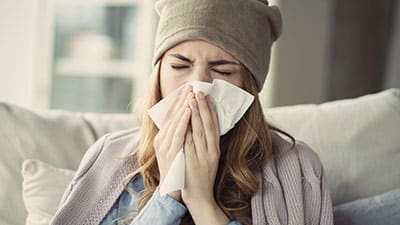December 10, 2019

For Immediate Release:
December 9, 2019
Contact:
Lisa Cox
Office of Public Information
Lisa.Cox@health.mo.gov
First flu-associated deaths reported in Missouri
The total number of influenza cases in Missouri recently surpassed the 1,500 mark, and the state has received three reports of influenza-associated deaths this season. As preparations are made for holiday gatherings, getting the annual flu shot should be on the to-do list so that holiday cheer can be spread rather than influenza.
It is important to remember that flu is hard to predict, but anyone can help prevent the spread of the flu. The best way to prevent seasonal flu is to get vaccinated every year.
“For those who haven’t already been vaccinated, it is important to know that it’s not too late,” said Dr. Randall Williams, director of the Missouri Department of Health and Senior Services. “We are approaching the peak of flu season, so now is still a great time to protect yourself and others around you by being vaccinated.”
How can I prevent the flu?
- Get a yearly flu vaccination.
- Avoid close contact with sick people.
- Wash your hands often with soap and water. If soap and water are not available, use an alcohol-based hand rub.
- Cover your nose and mouth with a tissue when you cough or sneeze. Throw the tissue in the trash after you use it.
- Avoid touching your eyes, nose and mouth.
- Clean and disinfect commonly touched surfaces.
- Stay home while you’re sick and limit contact with others to keep from infecting them.
How does the flu spread?
Flu viruses are thought to spread mainly from person to person through droplets made when people with flu cough, sneeze or talk. Flu viruses also may spread when people touch something with flu virus on it and then touch their mouth, eyes or nose. Many other viruses spread these ways too. People infected with flu may be able to infect others beginning 1 day before symptoms develop and up to 5-7 days after becoming sick. That means you may be able to spread the flu to someone else before you know you are sick as well as while you are sick. Young children, those who are severely ill, and those who have severely weakened immune systems may be able to infect others for longer than 5-7 days.
How do I know if I have the flu?
The flu usually comes on suddenly. People who have the flu often feel some or all of these symptoms:
- Fever or feeling feverish/chills
- Cough
- Sore throat
- Runny or stuffy nose
- Muscle or body aches
- Headaches
- Fatigue (tiredness)
- Some people may have vomiting and diarrhea, though this is more common in children than adults.
What should I do if I have the flu?
Most people with flu have mild illness and do not need medical care or antiviral drugs. If you get sick with flu symptoms, drink plenty of water and other clear liquids to prevent dehydration; get plenty of rest; and treat symptoms such as fever with over-the-counter medicines. In addition, you should stay home and avoid contact with other people except to get medical care. You should stay home for at least 24 hours after fever is gone without the use of a fever-reducing medicine.
Remember that groups of people at high risk for flu-related complications include children age 5 and under, adults older than 65, pregnant women, and those with weakened immune systems or chronic medical conditions such as asthma, diabetes or heart disease. If you have symptoms of the flu and are in a high risk group, or have questions or concerns, contact your primary health care provider.
For more information or to find a flu vaccine location near you, visit Missouri Health Website.
Weekly Influenza Surveillance Reports
About the Missouri Department of Health and Senior Services: The department seeks to be the leader in protecting health and keeping people safe. More information about DHSS can be found at Missouri Health Website or find us on Facebook and Twitter @HealthyLivingMo.
